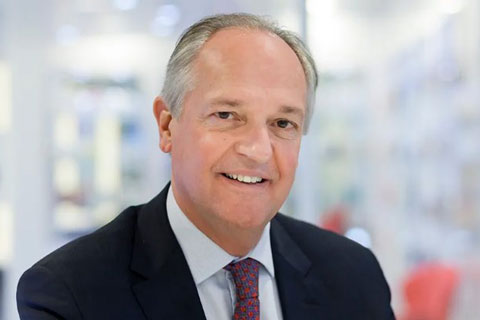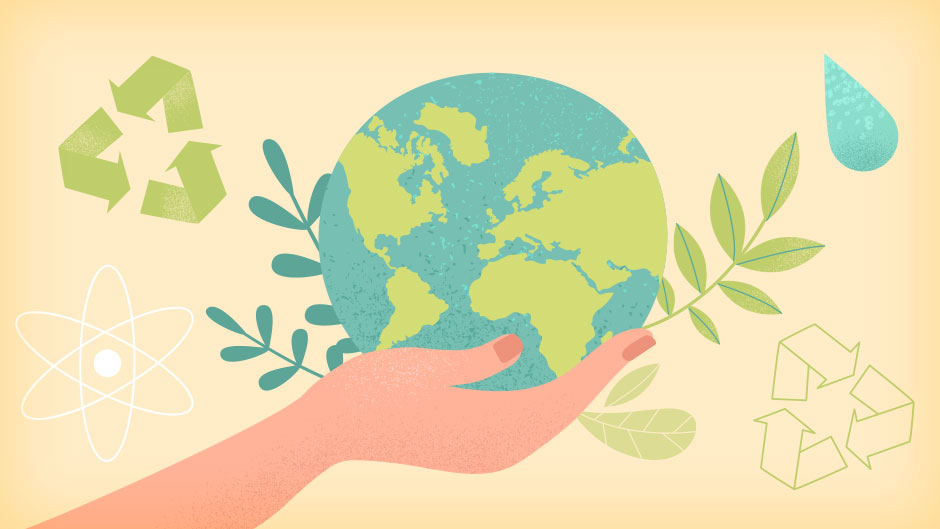Paul Polman, co-founder and chair of Imagine, a social venture accelerating business leadership to achieve sustainable development goals, addressed a University of Miami Patti and Allan Herbert Business School virtual audience on Feb. 25. The COVID crisis, Polman said, had brought certain failings of the business world into sharp focus—notably the hunger for “infinite growth on a finite planet” and social inequalities.
“One thing that COVID has shown us is that better business results are about more than just capital,” he said. “The virus has been an enormous warning that we need to foster regenerative economies where we actually restore things.”

Polman, the former CEO of Unilever, highlighted the Dutch-Anglo commodities firm’s decade of continuous growth—achieved while simultaneously embracing sustainable business practices. In his “Miami Half Hour” talk, he urged businesses to seek performance measures that value “people and planet” and for business schools to develop leaders skilled and motivated to guide the “regenerative economies” needed today.
While most business schools continue to emphasize “spreadsheets and market shares,” the Miami Herbert Business School is an anomaly, Polman said, one that focuses on cultivating executives with bold moral vision who pursue long-term goals that benefit multiple stakeholders—not just their shareholders.
He countered the misconception that there is a trade-off between being profit-driven and purpose-driven.
“Increasingly we are seeing that purpose-driven businesses have more motivated and energized employees, have more satisfied partners, have better relationships with their suppliers, drive innovation faster—and ultimately have better business results,” he said.

David Kelly, economics professor and academic director of the M.S. in Sustainable Business, outlined how the program’s curricula embraces Polman’s exhortations to forge a broader definition of business performance.
“This type of thinking is central to what we’re doing and infused throughout the program,” Kelly said. He referenced a risk management class he teaches that demonstrates how sustainable business practices reduce reputation risks by ensuring that working conditions are safe and that no child labor is used throughout the firm’s global supply chain, and how they likewise serve to minimize environmental accidents. In turn, the firm benefits through lower insurance costs and fines and becomes more attractive to socially responsible consumers and investors.
He also cited the economics course that instructs students how to reduce the use of resources such as fuel and electricity, which both benefits the planet and the firm through lower resource costs.
In an interview that explored the trend toward electric cars, Kelly examined the possibilities for U.S. start-ups, such as QuantumScape, to challenge China’s dominance of the markets that produce and assemble the batteries needed to power the new cars. The challenges they face point to the need for the systemic economic restructuring that Polman outlined.
“You have to understand how it works with technology, whether it’s Google Nest, iPad, or the iPhone,” Kelly said. “The technology is designed in the U.S. and then they go over to China or Mexico or East Asia and say, ‘build this.’ The labor costs are low, and the raw materials—lithium in the case of batteries—can be sourced at very low cost because the minors’ wages are lower and environmental permitting is easier.
“QuantumScape hasn’t built the battery yet, but I guarantee it’s right out of this playbook,” he said. “They’ll design a solid-state new technology that has potential game-changing nature to it and have it built in China and bring it right back here.”
Kelly has no doubts that electric vehicles (EVs) are the future for the industry—“there are a thousand great things about them, the only limits are cost and range, and they’re catching up.” Yet the current policies that purportedly support the industry, whether tariffs or incentives, are misaligned, he added.
“The policy [up to $7,500 federal tax credit] is terrible—it’s 100-percent welfare for the rich,” he said, noting that most low- or middle-income families don’t reach the threshold to benefit from the credit. Secondly, Kelly said the current policy picks winners by subsidizing only EVs (rather than hybrids, fuel-efficient gasoline vehicles, and new technologies such as fuel cells). Third, EV subsidies causes U.S. manufacturers to compete against each other on a playing field that is not level—the credits offered to Tesla and other manufacturers phase out after the first 200,000 cars.
In comparison, the Chinese government has been supporting the electric car industry with subsidies over the past 14 years, according to a recent New York Times report.
Nor do tariffs solve the dilemma for U.S. manufacturers, Kelly explained.
“If the goal is to get the U.S. car fleet electrified, then you want the batteries to be cheap, and you don’t want to put tariffs on and drive up the cost and make them more expensive than they already are.”
If the goal is truly to reduce carbon emissions, he said, then a carbon tax is the best approach. He noted that several bills are currently moving through Congress.
To offset Chinese dominance in battery production, the U.S. would need to continue to develop advanced manufacturing and robotics techniques to lower labor costs, Kelly said. The U.S. does have lithium reserves—although only about a tenth of China’s—yet the environmental permitting process is far more complicated and expensive than it is in China, he pointed out.
“So, if the whole reason for the electric car in the first place is to be more friendly to the environment, it doesn’t make sense to produce it in China and skimp on the environment there,” he said. He noted, too, human rights concerns. The Chinese government has been increasingly intolerant of criticism, sanctioning companies—Disney and the National Basketball Association are just a few recent high-profile examples—and workers within Chinese companies who deign to criticize the government’s methods, he explained.
“These are huge concerns, and a lot of companies are rethinking where they want to manufacture, especially in an industry like renewables where people are concerned, then there’s a disconnect in terms of the sustainable company working hard to make the world a better place,” he said.
The complicated trade-offs, Kelly suggested, point back to Polman’s assertion that a new generation of leaders is needed to collectively shift the global playing field.
“At the end of the day, it’s all about creating purpose-driven leaders who can attack these issues of today and tomorrow,” Polman said, “and universities that understand that it’s as much about sustainability as sales, as much about climate change as cash flows, and as much about international development as business development.”

